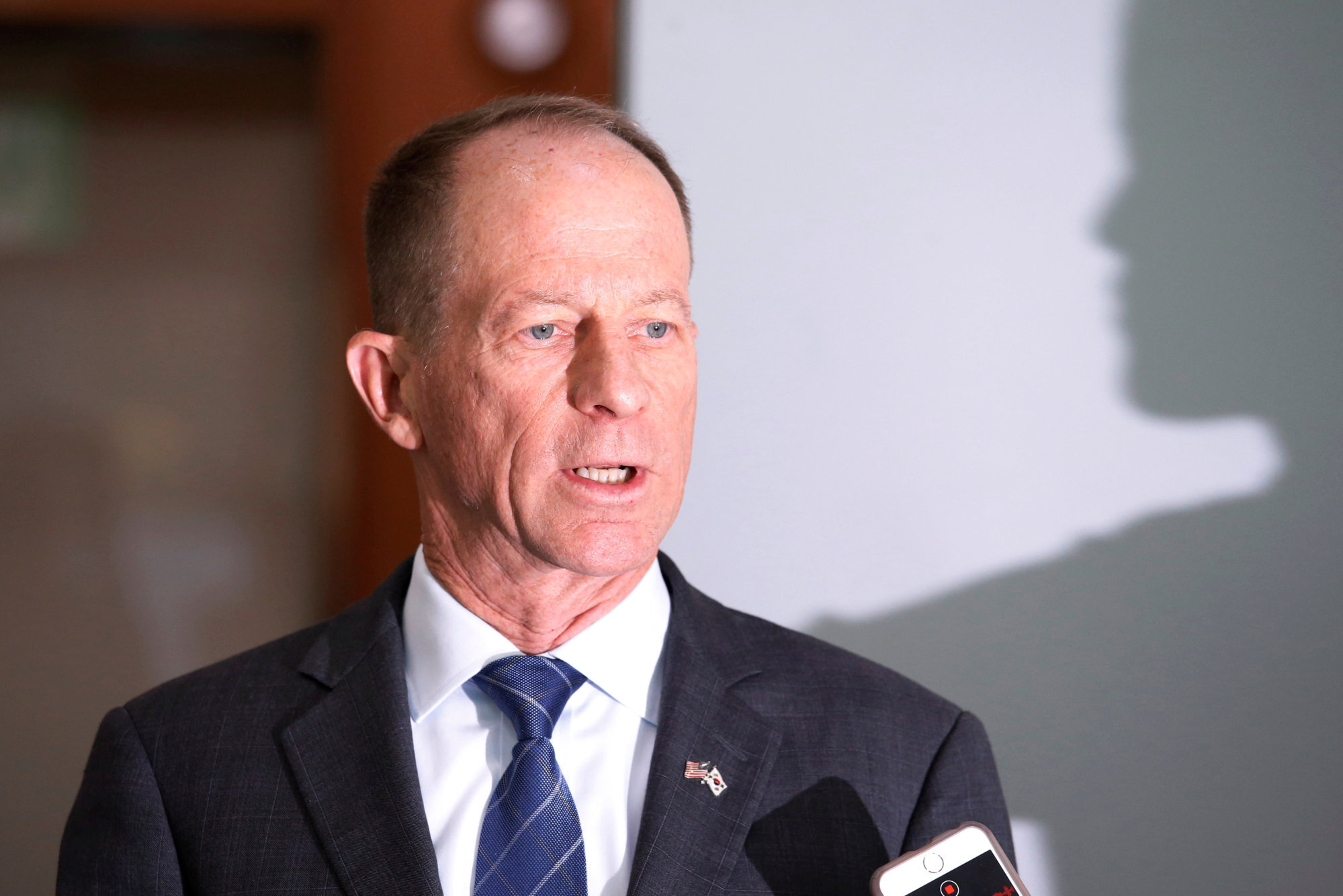
Top US diplomat denies the Quad’s purpose is to counter a rising China
- ‘It is about standing up for a rules-based order, making sure that we uphold those rules and principles if they’re being challenged,’ Secretary of State Antony Blinken says
- Noting that ‘diplomacy is all about ambiguity’, former State Department official suggests comment reflects nuances of building alliances and confronting Beijing
“This is not about standing against anyone in particular,” Blinken told the Australian Broadcasting Corporation when asked whether the group’s goal was to offset China’s influence in the region.

“It is about standing up for a rules-based order, making sure that we uphold those rules and principles if they’re being challenged.”
Blinken’s interview came in the middle of a multi-day trip across the Pacific, and ahead of a meeting among the four Quad foreign ministers. A senior US State Department official said last week it would likely discuss the “challenges that China poses” to democratic values in the region.
“One thing I’ve learned: diplomacy is all about ambiguity,” said David Stilwell, who served as the State Department’s top East Asia official during Donald Trump’s administration. “If you come out too strong on any issue, you box yourself in. You force yourself into a corner.”
“It’s not ‘all’ about China – that’s probably a better way of saying it,” he added. “Throw that ‘all’ in there, and I think it gives you a better idea.”

But Blinken has emphasised over the last year that Washington sees its allies and partners as essential in any effort to counter Beijing’s growing power and influence around the world.
“It does come across as a bit disingenuous,” said another former US official who served under both Trump and Biden, when asked about Blinken’s insistence that the Quad was not about China.
“But they’re trying to be sensitive to our allies’ concerns,” the person, who spoke on condition of anonymity to avoid undercutting the administration, said. “And there is a lot of truth to it – there’s a lot more to the Quad than to counter China.”
Legislation making its way through the US Congress would establish an interparliamentary working group for the four countries – another step towards formalising the bloc.
In September, the four Quad leaders held a virtual meeting for the first time, hosted by Biden.
“The meetings I was in were very valuable,” said Stilwell, the former State Department official. “People were finishing each other’s sentences. The mood, the rapport among all four parties was very cooperative.”
At the same time, Beijing’s relationships with each of the Quad nations have been deteriorating.
“If you look at a rising China, a China that’s fighting wars with its neighbours, that’s the impetus – but it’s not the reason – for [the Quad’s] existence,” Stilwell said. “There’s much more to it than just China.”
Beijing has also assailed the Quad as a whole, at one point likening it to “sea foam” in the ocean that gets attention and then dissipates.
When the Quad leaders met last year, a Chinese foreign ministry spokeswoman said the four countries should “stop forming closed and exclusive cliques”.
Still, experts said that the US may not want to push its allies too hard, or make them feel like they have to choose sides with either only Washington or Beijing.
“We don’t always need to be yelling ‘China’ from the rooftops,” said Eric Sayers, a former adviser to the head of the US military’s Pacific Command who is now a non-resident fellow at the American Enterprise Institute in Washington.
“Of course the Quad is about China, but it’s also about democracies doing big things together as an alternative to authoritarian leadership.”
Yun Sun, co-director of the East Asia Programme and director of the China Programme at the Stimson Center in Washington, said the Quad had evolved over the last year, and was now less concerned with hard security and more with issues like supply chains and vaccines.
“There is a strong argument that the US is strengthening its partnerships because the partners are important, not because of China,” she said.
“In fact, I do think the message is clear,” she added. “The US is back because it is the leader of the world, not because there is a China to be dealt with.”


